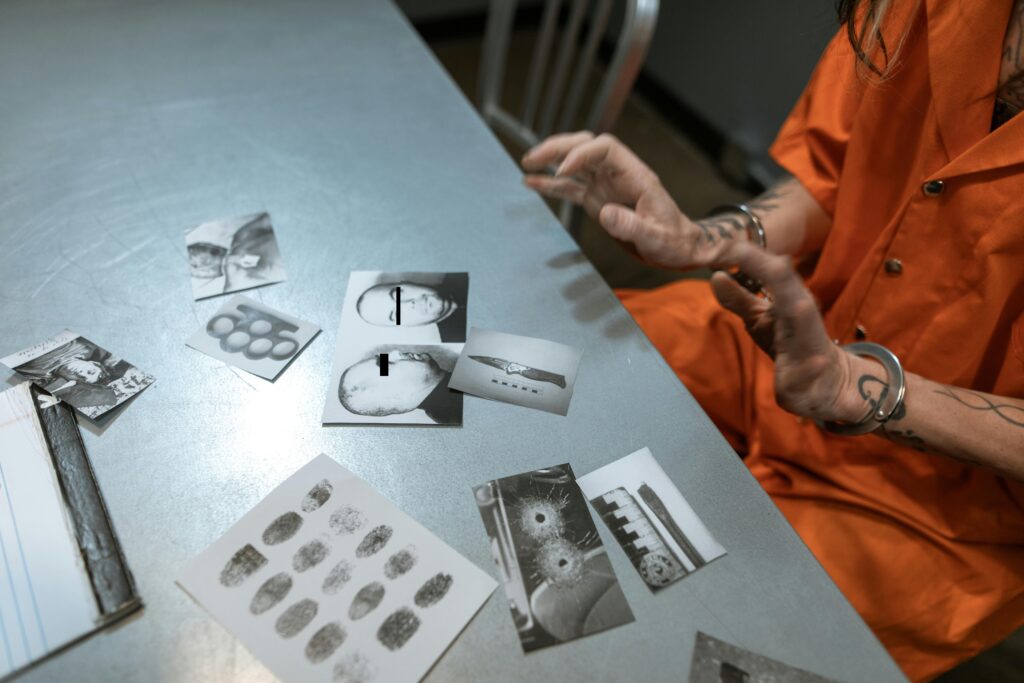In a story that could rival any crime drama, one man took the law into his own hands, targeting individuals listed on Alaska’s public sex offender registry. Jason Vukovich, later dubbed the “Alaskan Avenger,” became a controversial figure—revered by some as a hero and condemned by others as a dangerous vigilante. His actions were fueled by a dark and painful past, creating a whirlwind of moral dilemmas and legal consequences.
What drove him to such extremes? And what does his story reveal about justice, trauma, and society’s handling of these issues? The answers are as complex as the man himself.
The Descent into Crime
After fleeing his abusive home at 16, Jason Vukovich faced the harsh realities of survival without identification or financial support. To sustain himself, he turned to petty crimes, initiating a pattern of illegal activities that spanned multiple states, including Washington, Oregon, Idaho, Montana, and California. His offenses ranged from theft to drug possession, reflecting a life in turmoil.
In 2008, Vukovich returned to Alaska, but his criminal behavior persisted. He accumulated charges for theft, possession of controlled substances, and was accused of assaulting his then-wife, an allegation he denies.
Vukovich acknowledged that his criminal activities were a manifestation of deep-seated self-loathing stemming from his childhood abuse. He described his mindset: “My silent understanding that I was worthless, a throw away… The foundations laid in my youth never went away.”
Research supports the correlation between childhood trauma and subsequent criminal behavior. A study published in the Journal of Interpersonal Violence found that individuals who experienced childhood abuse are at a higher risk of engaging in criminal activities later in life. The study emphasizes the importance of early intervention and support to mitigate these outcomes.

The Vigilante Rampage
In June 2016, Jason Vukovich’s unresolved trauma culminated in a series of violent acts against individuals listed on Alaska’s sex offender registry. Armed with a hammer and driven by a desire for retribution, he targeted three men:
- Charles Albee: On June 25, Vukovich forced his way into Albee’s home, slapped him multiple times, and robbed him.
- Andres Barbosa: Two days later, accompanied by two women, Vukovich entered Barbosa’s residence at 4 a.m., threatened him with a hammer, punched him in the face, and stole several items, including his truck.
- Wesley Demarest: On June 29, Vukovich broke into Demarest’s home at 1 a.m., struck him in the head with a hammer, causing a skull fracture, and robbed him. During the assault, he declared, “I’m an avenging angel. I’m going to mete out justice for the people you hurt.”
These attacks left the victims with significant physical and psychological injuries. Demarest, for instance, suffered a traumatic brain injury that impaired his ability to form coherent sentences and resulted in the loss of his job.
The Legal Fallout
Following his arrest, Jason Vukovich faced significant legal repercussions for his actions. He was charged with 18 counts, including assault, robbery, burglary, and theft. In 2018, as part of a plea agreement, Vukovich pleaded guilty to first-degree attempted assault and a consolidated count of first-degree robbery. In exchange, prosecutors dismissed over a dozen other charges.
Superior Court Judge Erin Marston sentenced Vukovich to 28 years in prison, with five years suspended and an additional five years on probation. During sentencing, Judge Marston emphasized, “Vigilantism is not something that we accept in America… It’s not something that we accept in this community and it is just simply something that will not be tolerated.”
In 2020, Vukovich appealed his sentence, arguing that his post-traumatic stress disorder (PTSD) should be considered a mitigating factor. However, the appeal was denied, with the court maintaining that his actions could not be excused by his mental health condition.
The case sparked public debate, with some viewing Vukovich as a vigilante hero, while others condemned his actions as unlawful and dangerous. Legal experts and victim advocates highlighted the risks of taking the law into one’s own hands, emphasizing the importance of due process and the potential for unintended consequences in acts of vigilantism.
Vukovich’s Reflections
In the aftermath of his actions, Jason Vukovich expressed deep remorse and sought to convey a cautionary message to others. In a letter to the Anchorage Daily News, he reflected on his past, stating, “I began my life sentence many, many years ago; it was handed down to me by an ignorant, hateful, poor substitute for a father.”
Vukovich urged individuals who have suffered similar traumas to seek healing through constructive means rather than resorting to violence. He wrote, “If you have already lost your youth, like me, due to a child abuser, please do not throw away your present and your future by committing acts of violence.”

The Bigger Picture: Debate Over Sex Offender Registries
Jason Vukovich’s story has stirred up heated debates about sex offender registries and whether they really serve their purpose—or if they come with more baggage than benefits. Sure, these registries were meant to keep communities safe by providing information about convicted offenders, but have you ever wondered if they actually deliver on that promise?
The evidence? Well, it’s complicated. Research on the effectiveness of these registries in preventing repeat offenses is all over the map. One study looked at 25 years of data on Sex Offender Registration and Notification (SORN) policies and found mixed results. In some cases, the impact on reducing repeat offenses was slim to none. Doesn’t that make you question if we’re focusing on the right solutions?
And then there’s the darker side—what happens when these registries fall into the wrong hands? Take Vukovich, for example. He used the registry as a hit list, targeting individuals he believed deserved his version of justice. This isn’t an isolated issue. Stories like his remind us how easily public access to sensitive information can fuel vigilantism, creating more problems than it solves.
But the challenges don’t stop there. Imagine trying to rebuild your life with a giant label hanging over your head. For many offenders, being listed on a registry makes finding a job or a place to live nearly impossible. That kind of stigma doesn’t just hurt them—it might even make them more likely to reoffend. Critics argue we’ve got to ask ourselves: is the current system really protecting communities, or is it setting people up for failure?
So, where do we go from here? Some say we need to rethink the whole setup with tiered registries that separate low-level offenders from those who pose a real danger. Others push for more resources to help offenders reintegrate into society. Whatever the solution, one thing’s clear: it’s time for an honest conversation about what’s working—and what isn’t. What do you think?
A Cycle of Trauma and Justice
Jason Vukovich’s story is a complex intersection of pain, justice, and unintended consequences. While his actions were driven by a desire to confront the shadows of his own traumatic past, they ultimately perpetuated cycles of violence that affected his victims, himself, and society as a whole. His journey underscores the importance of addressing trauma through constructive and lawful means rather than resorting to acts of retribution.
This case also highlights the broader societal challenges associated with public sex offender registries, the long-term effects of childhood abuse, and the necessity of accessible mental health support. Jason’s own reflections emphasize that healing and justice must go hand-in-hand, fostering change without creating new harm.
For society, Jason Vukovich’s story serves as a sobering reminder of how untreated trauma and systemic shortcomings can lead to tragic outcomes. Addressing these issues proactively can help prevent similar stories and create pathways for true recovery and rehabilitation.


